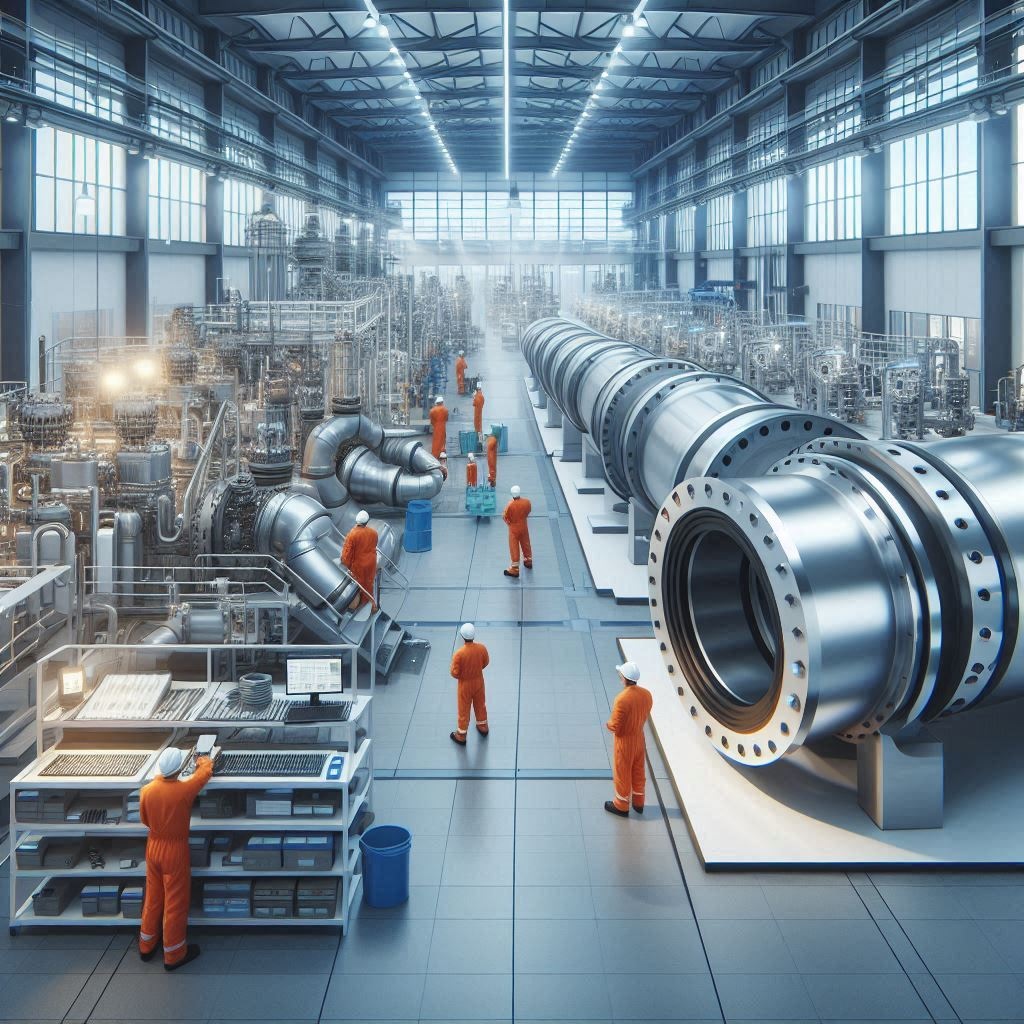In sectors that transport liquids, gases, or steam by pipeline with a range of temperatures and pressures, pipe expansion joints are important ancillary elements. A conscientious pipe expansion joints supplier will be required to provide reliable and high-performance solutions that address temperature expansion, vibration and movement from the piping system in order to maximize safe and efficient operation. Power generating stations, petrochemical refineries, water treatment plants, and HVAC systems will need pipe expansion joints that are reliable, leak resistant, and manufactured with precision.
What is a Pipe Expansion Joint?
A pipe expansion joint, also called a compensator, is a flexible connector placed between two adjacent sections of pipe. A pipe expansion joint is used to handle the changes in length from thermal expansion or contraction, vibration, or other types of mechanical movement. Different expelled joints prevent stress and strain on piping systems, prevent equipment from being damaged, and extend the service life. Pipe expansion joints can be in the form of metal expansion joints, rubber expansion joints, and fabric expansion joints. Some type will be more suitable for specific industrial applications.
How is a Pipe Expansion Joint Manufactured?
In order to manufacture quality pipe expansion joints it is essential to start with the appropriate material – e.g., stainless steel, rubber compounds, carbon steel, proprietary alloys, etc.-based on the expected working conditions.
For metal expansion joints, thin sheets of metals are formed in to corrugated bellows by hydroforming or mechanical forming processes and then welded to flanges, pipe ends or other fittings by precisely applying TIG or MIG welding. Rubber expansion joints are produced by molding reinforced elastomer in to a joint under high pressure and then curing them through the process of vulcanization. Each joint is subjected to an extensive inspection that will include dimensional inspection, non-destructive testing (NDT) and pressure testing for confirmation of durability and dependability before being assembled and shipped.
Applications of Pipe Expansion Joints
Pipe expansion joints are vital components used in numerous industries for increased safety, flexibility, and efficiency of pipelines. Expansion joints are found in the power industry to help manage thermal expansion in a steam pipeline and eliminate stress, which can lead to damage in thermal and nuclear power plants. Expansion joints are also used in the oil and gas industry to allow for movement in pipelines designed to transport crude oil, natural gas, and petrochemical product that can be at different pressures and temperatures. In water and wastewater treatment facilities, flexible connections are required between pumping stations, valves, and pipelines to reduce mechanical stress on equipment and also increase service life. HVAC systems utilize expansion joints to mitigate vibration, as well as provide for thermal expansion in heating, ventilating, and air conditioning duct systems, in either operation or at rest. Finally, in the maritime and shipbuilding sector, expansion joints are used to mitigate movement and vibration throughout the piping systems of a ship, and deliver safety and reliable serviceability in extreme marine conditions.
Benefits of Using High-Quality Pipe Expansion Joints
There are many advantages to selecting a pipe expansion joints manufacturer, and these advantages are all directly related to increased system performance. Quality expansion joints can effectively absorb energy to pipelines that mitigates cracking, leaking or structural compromise associated with thermal expansion, vibration or pressure variation. Quality welding and sealing practices ensure leak free performance for much longer years into the harshest operating environment. Good design of pipe expansion joints offers sufficiently ideal flexibility to allow for axial, lateral and angular movement without residence time or loss of integrity.
Quality construction and coatings add durability and functionality in elevated temperatures, elevated pressures, and harsh or corrosive conditions. Reducing maintenance plus limiting unplanned downtime from an acceptable pipe expansion joint manufacturer provide real savings in money while your system continues to operate.
How to Choose the Best Pipe Expansion Joints Manufacturer
Pipe expansion joints manufacturer adheres strictly to global industrial standards for manufacturing and supplying Pipe expansion joints across the globe. First the manufacturer should use certified high-grade raw material suitable for the needs of the project such as temperature and pressure and corrosion-resistance.
Compliance with worldwide standards enables guaranteed consistency in manufacturing (i.e., EJMA, ASME or ISO). If project specifications are unique in many aspects, then the ability to provide designs that deviate from the standard, is just as important. A complete and competent testing and quality control process is equally important, including dimensional checks, pressure testing, and non-destructive testing, to ensure that any defect is removed before installation. Finally, post-sale support is necessary to gain technical advice and have critical spare parts available to limit downtime and allow the system to be operated smoothly throughout its service life.
Conclusion
A reputable pipe expansion joints manufacturer provides the supply of pipe expansion joints as well as the engineering know-how to help in the design of a piping system that safely and economically operates as intended. Whether a project consists of a high-pressure steam line, a water desalination project, or a chemical processing facility, using expansion joints from a reputable manufacturer will help reduce system stress, maximize equipment lifespan, and enhance the operational efficiency of the system. Considerations of quality, accuracy, and reliability continue to be the factors that set the best manufacturers in an industrialized setting apart from competition.


